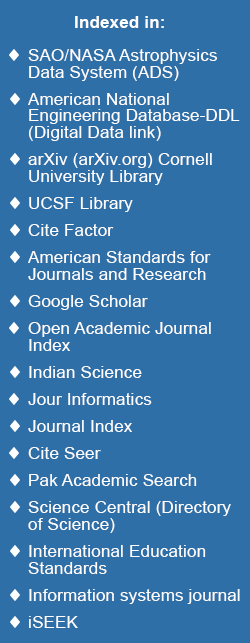ISSN : 2349-3917
American Journal of Computer Science and Information Technology
Code Libraries: Empowering Developers and Driving Software Development
Sean Maxson*
Department of Computer Science and Information Technology, University of Oregon, Eugene, United States of America
- *Corresponding Author:
- Sean Maxson
Department of Computer Science and Information Technology,
University of Oregon, Eugene,
United States of America,
Email: seanmax67@yahoo.com
Received date: May 09, 2023, Manuscript No. ipacsit-23-17561; Editor assigned date: May 11, 2023, PreQC No. ipacsit-23-17561(PQ); Reviewed date: May 25, 2023, QC No ipacsit-23-17561; Revised date: June 01, 2023, Manuscript No. ipacsit-23-17561(R); Published date: June 08, 2023, DOI: 10.36648/2349-3917.11.6.7
Citation: Maxson S (2023) Code Libraries: Empowering Developers and Driving Software Development. Am J Compt Sci Inform Technol Vol: 11 No: 6:007
Introduction
Code libraries play a pivotal role in modern software development, enabling developers to streamline their workflow, enhance productivity, and leverage reusable code components. This research article provides a comprehensive analysis of code libraries, exploring their definition, types, benefits, and impact on software development. Additionally, we discuss popular code libraries across different programming languages and examine their significance in fostering innovation and collaboration within the developer community. By understanding the role of code libraries, this article aims to underscore their importance in driving efficient and scalable software development processes. Code libraries have become an integral part of software development, offering a collection of pre-written code modules and functions that developers can incorporate into their projects. This article aims to delve into the concept of code libraries, highlighting their significance in facilitating efficient and scalable software development processes. We define a code library as a repository of reusable code components, often organized by programming language or functionality. This section explores different types of code libraries, including general-purpose libraries, domain-specific libraries, and framework-specific libraries. We discuss their respective characteristics and applications.
Benefits of Code Libraries
Code libraries bring numerous benefits to developers and software development teams. This section outlines the advantages of utilizing code libraries, such as increased productivity, improved code quality, reduced development time, and enhanced maintainability. We also examine how code libraries foster code reuse, promoting consistency and scalability across projects. Code libraries are available in a wide range of programming languages, catering to diverse development needs. This section highlights popular code libraries across different programming languages, such as Python, JavaScript, Java, and C+ +. We discuss the features, functionalities, and community support associated with these libraries, showcasing their impact on development ecosystems. Code libraries play a pivotal role in fostering collaboration and driving innovation within the developer community. This section explores how code libraries facilitate knowledge sharing, encourage open-source contributions, and enable developers to build upon existing solutions. We also discuss the importance of documentation and community engagement in maximizing the benefits of code libraries.
Challenges and Considerations in Using Code Libraries
While code libraries offer numerous advantages, there are also challenges and considerations to be aware of. This section addresses potential drawbacks, such as library dependencies, compatibility issues, and security vulnerabilities. We emphasize the importance of thorough testing, version control, and proper licensing to mitigate these challenges effectively. The field of code libraries continues to evolve, driven by emerging technologies and changing developer needs. This section discusses future trends, including the rise of package managers, the integration of machine learning in code libraries, and the emergence of low-code and no-code platforms. We explore how these advancements will shape the future of code libraries and software development practices. Code libraries are indispensable tools in modern software development, empowering developers to streamline their workflow, improve productivity, and foster collaboration. This research article has explored the definition, types, benefits, and impact of code libraries on software development. By leveraging code libraries effectively, developers can expedite development processes, build robust and scalable applications, and contribute to a thriving developer ecosystem.

Open Access Journals
- Aquaculture & Veterinary Science
- Chemistry & Chemical Sciences
- Clinical Sciences
- Engineering
- General Science
- Genetics & Molecular Biology
- Health Care & Nursing
- Immunology & Microbiology
- Materials Science
- Mathematics & Physics
- Medical Sciences
- Neurology & Psychiatry
- Oncology & Cancer Science
- Pharmaceutical Sciences
